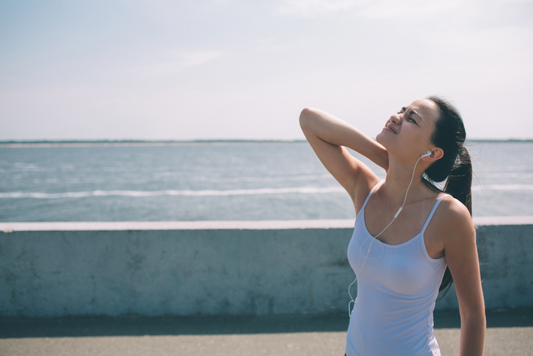Isn’t it ironic that many of us have more time to sleep while we isolate at home during the Pandemic but we have so many things to worry about that we lay awake for hours!

It’s a given nowadays that getting a good night’s sleep is as important as good dietary habits and plenty of exercise for maintaining a healthy lifestyle. In fact, many industries have thrived during these difficult times because they’re connected to the sleep-health economy. According to MarketResearch.com the Sleep Industry is worth more than $30 billion.
There are now so many ways to slip into a slumber - on a smart mattress, bathed in ambient lighting, drifting off to a Spotify sleep playlist, fueled by homeopathic sleep enhancers or meditation apps, following advice about routine modification or what to wear when you sleep or what to drink before you go to bed…..
Lack of sleep can seriously affect us both physically and mentally.
Obesity, diabetes, hypertension and the increased likelihood of suffering a stroke are probably the dangers most often associated with poor sleeping habits. The body is quite precise about how much it would like - too much sleep (more than 8-9 hours) is as bad as too little (less than 6 hours).
Psychologically, a poor sleeper can also be subject to mood swings and depression and all kinds of cognitive impairment.
So what can you do to ensure a good night’s sleep?
- Create the right environment. Try to establish a quiet space at a cool temperature with as little stark lighting as possible.
- Try to always include some exercise in your day, though not too close to bedtime - and limit the amount of daytime naps.
- Stick to a routine. Try to retire and rise at roughly the same time every day and aim to get 7-8 hours sleep. This will reinforce a pattern which your body expects.
- Never eat too much shortly before you go to sleep and try to avoid alcohol at a late hour.
- Try to establish a relaxing routine for bringing the day to a gentle close, in preparation for a proper sleep. This is when a Hotteeze heat pad can help. Gentle heat is an effective relaxant, so when you’re listening to some soothing music or a meditation app, apply a heat pad around the neck, chest or shoulder area to de-stress from the day. Just remember that you shouldn’t sleep while using a heat pad, so just place it in an air-tight freezer bag when you’re ready for bed and effectively “shut it off” until you want it to heat up again.
Be safe, stay cosy and sweet dreams!




